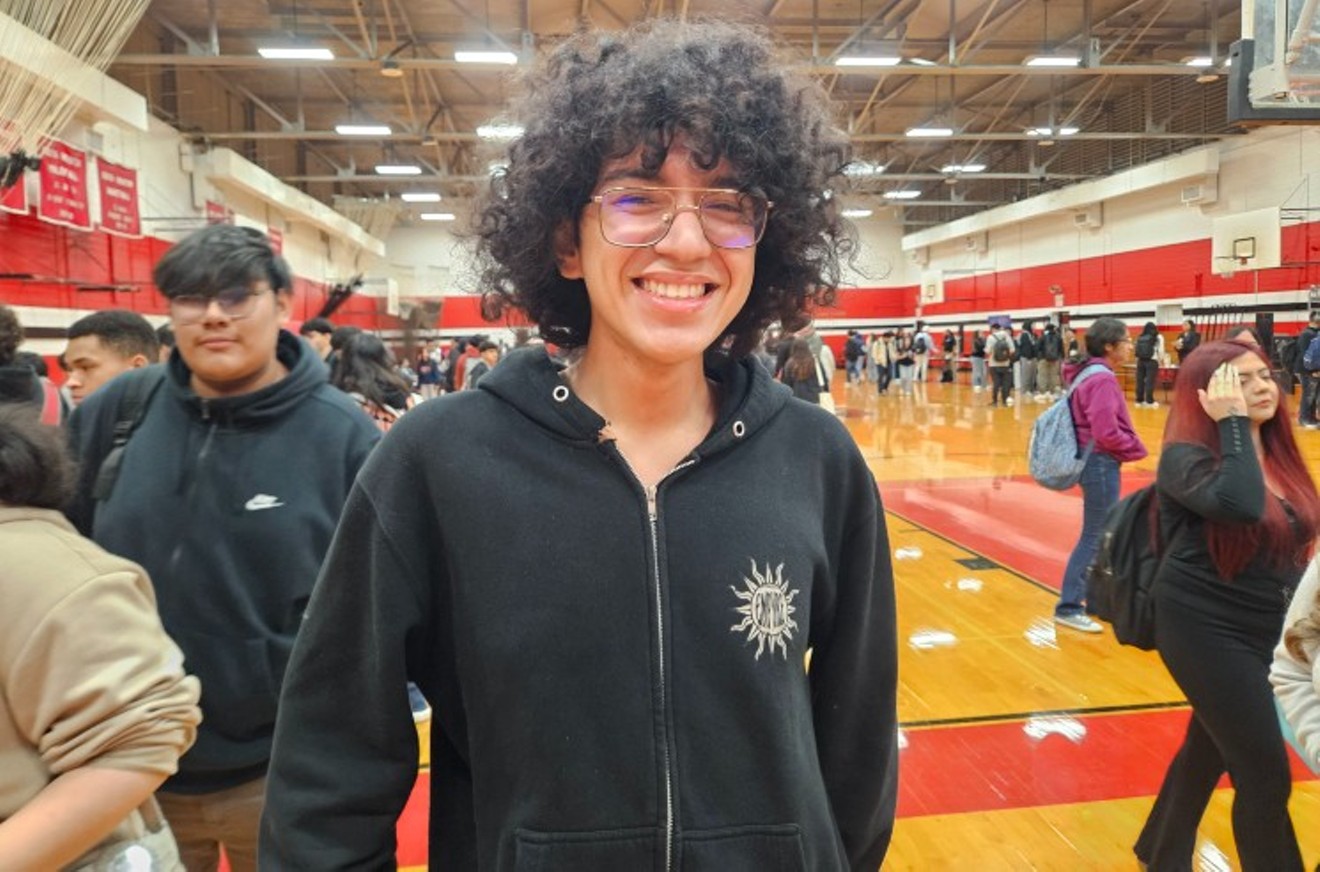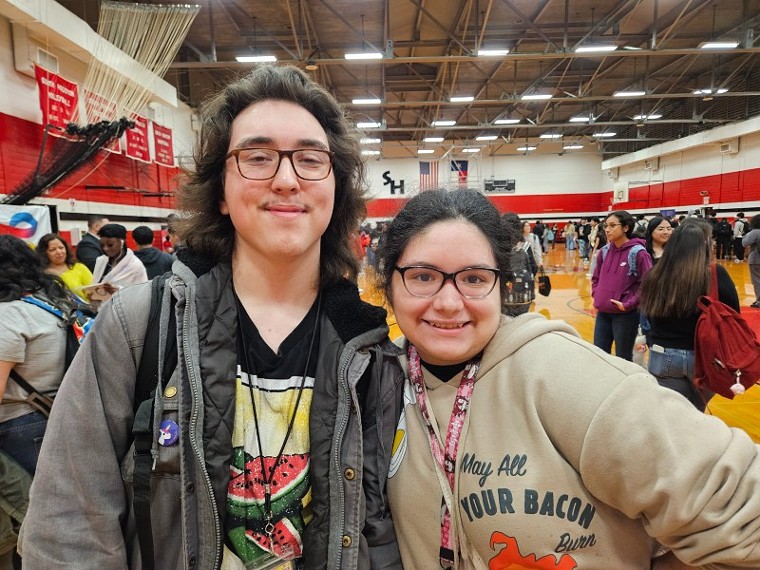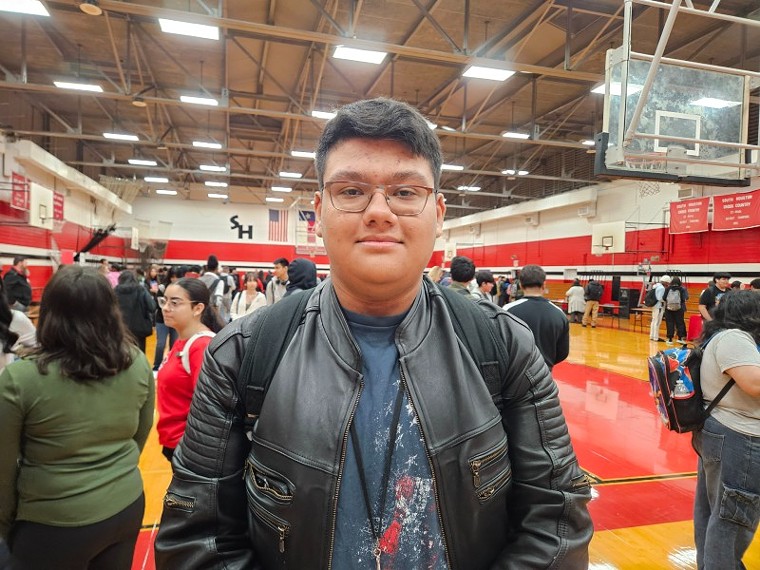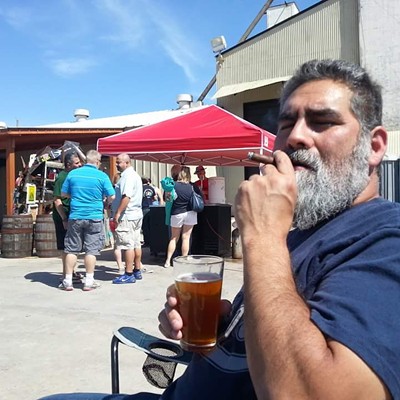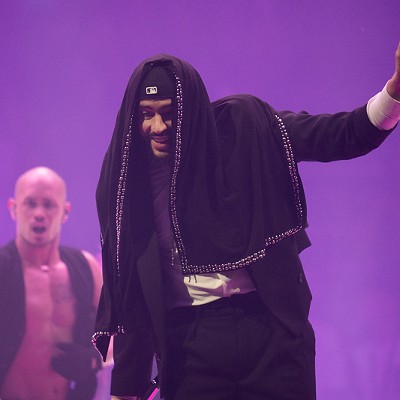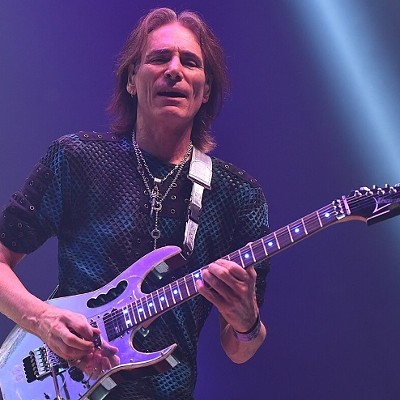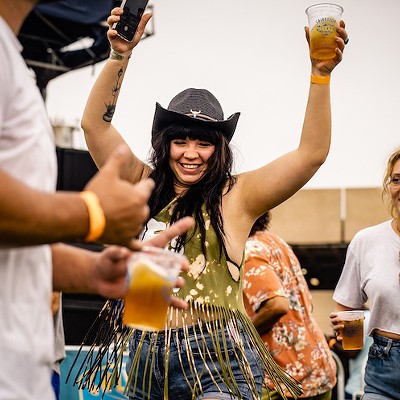I’m really interested in these students’ thoughts on music writing, since that’s the sort of writing I’ve done for the Houston Press for more than a decade, the type of writing I’m doing with an upstart radio program and podcast that features music and musicians. Students like those at South Houston High School help drive the music machine. They help decide what’s popular and which artists are going to last, not a greybeard in his late 50s pecking away at a computer keyboard. So, I allow them to ask all the questions they wish about this career and I have one for them – is music journalism dead?
Since your intrepid reporter failed to inquire about each student’s pronoun preference – a thing that is going to shape society and writing in the future whether you understand it or not – he’s going with they/them throughout the piece with respect to the Gen Zs with whom he spoke. Reporting on young musicians and having close friends in the Z age set, I know them to be affable, thoughtful, dogmatic, innovative and unafraid to trade thoughts or spend time with an old Gen X-er. These students ask solid questions, well-prepared as they are for this event by excellent teachers like Mrs. Martinez, the cherished, longtime family friend who invited me to the event.
“Do you need a degree in journalism to do what you do? Because one of my teachers said it’s a waste of time,” one student inquired/stated.
I agreed with the student’s teacher – probably best to major in something broader than journalism. I cited a report which suggests there are only 30,000 full-time journalists working in the U.S. A tiny percentage of those journalists cover music exclusively. That in comparison to an estimated 10 million Instagram influencers.
I tell them digital media allows for more inclusion in these careers than in the past. There are 31 million U.S. bloggers and about 4 million registered podcasts globally. No degree required. Preferred maybe, but not required. I was at a school and promoted the notion of higher education but I also acknowledged that not every student at South Houston High School will get a chance to attend a university. You can do this work with a strong interest in the subject, writing skills constructed from a lot of reading and a very good editor, I said.
“How much money do you make doing this?”
When we get to that question and all its depressing repercussions, I go into interviewer mode and really begin to pick their brains about whether writing and reporting on music has a future. The first student I ask is Adrian and they admit they never learn about the music they love by something they’ve read.
“Not really,” Adrian said, almost apologetically, when asked if they find new artists from magazines or the music columnists in the local newspaper, “but I’m sure that it would be very interesting to.”
Adrian thought for a moment and reconsidered the question.
“I guess you could say basically on Instagram because an artist could post something new and everybody would go crazy over it. Like the artist Kali Uchis – she’s my favorite, I love her – made a post that she’s having a child soon and everybody’s like, ‘Oh my Lord, my godchild!’”
Instagram, now home of the music journalism scoop!
If you’re not reading Rolling Stone or Spin to learn about the latest songs, I asked, how do you find new music? I took a poll so unscientific that Einstein’s long-closed eyes rolled hard in his long-dead head – tick marks on a poster board taped to the table. YouTube topped the list followed by TikTok and Instagram. Outlets like the Houston Press, the Houston Chronicle, Consequence of Sound and Pitchfork didn’t get a tick at all.
“To be honest, I just scroll through the Internet and whatever I hear that sounds like a good beat to me, I just start picking it up and looking for the song. If I like the whole song, then I’ll have it in my playlist,” said Adrian.
Axel and Annalisa stopped by my table. Axel said their mom got them into Linkin Park as a kid. Annalisa said they favor random scrolls through TikTok “because I’m into more Japanese music, like Vocaloid,” which really took me aback. Not that it matters since these kids appear to be adventurous learners, but Vocaloid music isn’t what I might have guessed I’d be discussing with students at a campus that’s 85 percent Latino populated. Again, the world has shrunk for them and they’re curious explorers.
“I would definitely say music is passed down from generation to generation,” Axel added. “I like old-timey rock music, too.”
Both Axel and Annalisa admitted they never go to music sites to learn about music and Axel – who was so interested they came to my table twice that morning with different friends, said “I’ve never heard of anything like that.”
Let me stop you right now, close-minded, jealous, even fearful elders (you know who you are) who might suggest these students simply have no interest in learning. That would be wrong, of course. I met many bright kids and several who are into literature, students like Joshua, who is so interested in words they’re using music to learn a different language.
“I generally learn about music by just exploring YouTube mainly and just finding people on discussions about music albums of almost all kinds – pop, punk, rock – almost anything. I just have a really vast interest in the lyrics and how it is that songwriters put everything together and how it can have so many different meanings. Just by changing a few words gives it a completely different meaning.
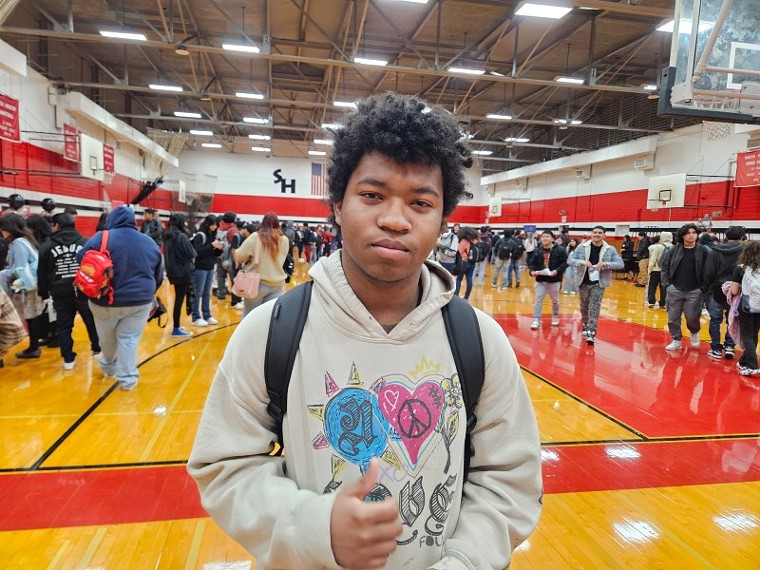
Leonard is an aspiring writer and plans to be a music journalism reader, starting with this article.
Photo by Jesse Sendejas Jr.
Take that, haters! I met another budding writer at the station, a soft-spoken but keenly interested SHHS junior named Leonard.
“I get suggestions from my family or friends, or I go just look up random lyrics that I hear, and I look for some that have less views than others so I can see if it’s good.” Leonard is a music explorer, not necessarily into following what’s popular.
Leonard is interested in writing, just not how it applies to music and its trends. They said they never go to music sites to read about what’s next. That might not be a deathblow to the trade as much as it is a sign of this generation’s curiosity, the ways they use the unfolding technology that is literally at their fingertips for learning about anything, music included. Leonard did say maybe they would be interested in reading about music so I told them this was a great chance to start, by reading a music story in the Houston Press that highlights their thoughts.
It was just a matter of time before I encountered a budding musician. Meet Salvador and Jose. Salvador is the singer and Jose is the producer and they’re friends. Salvador said their influences are Ramón Ayala, the 78-year-old king of Norteño accordion, and Chalino Sánchez, the narcocorrido legend who was murdered in 1992, more than a decade before Salvador was born. Jose enthusiastically said Salvador has the pipes to cover their songs. I just wanted to know what made someone so young interested in these old school artists. An enthralling written article, perhaps?

Salvador and Jose want to make the music others will (hopefully) write about.
Photo by Jesse Sendejas Jr.
Sanchez’s story is especially compelling, true crime stuff of Mexican music lore, a real-life mystery that features a caught-on-video concert moment where Sanchez may have learned of his doomed fate (look it up on YouTube – it’s fascinating). The story is so engrossing, it’s been covered in the exceptionally written podcast Ídolo: The Ballad of Chalino Sánchez. Salvador has researched Sanchez’s story by reading about him on the Internet. Score one for music journalism.
The question of whether music journalism is dead can’t be answered in a single morning on a single high school campus with a single freelance writer and a very specific demographic. But, we do know music has a future and that future is in the hands of people like Salvador and Jose, who want to make it, and Adrian and Annalisa, who want to hear it.
This is the time to get these young music lovers considering how others think deeply about music and the roles writers play in that deep thinking. Will any of them want to express their feelings about how music moves them, about the myriad of emotions that swells with an inspirational musical overture or thought-provoking lyrics?
“Oh, absolutely,” Joshua said with the conviction of a young Haruki Murakami. “It’s kind of a shame because a lot of people listen to music but they don’t really pay attention to the words that are said, which I think is one of the biggest things in music, and obviously the catchy beats. Actually being able to listen to the lyrics and being able to understand them is a completely separate ballgame of its own.
"I’m surprised there aren’t more colleges or schools that teach about that stuff because it’s so profound. That is the word I would use, profound. To get right at the heart of what the writer of the song is feeling, that mixed with the music, can tell so many different stories.”

